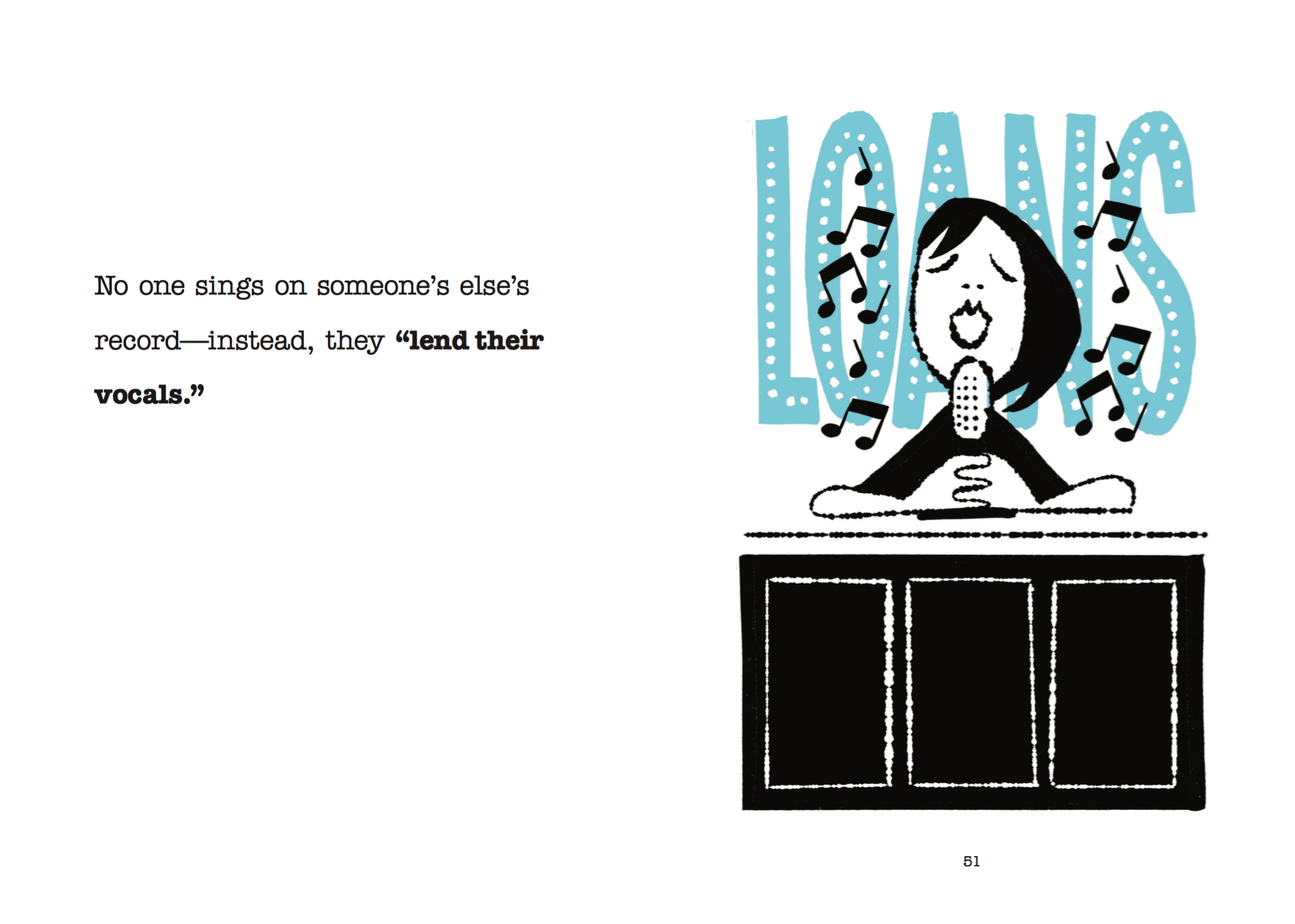Responsible for writing two of the most essential books covering contemporary rock—1993’s Come as You Are, a biography of Nirvana, and 2001’s Our Band Could Be Your Life, a collection of profiles featuring thirteen of the most prominent and influential indie rock bands of the ’80s—Michael Azerrad has garnered a sincere reverence from both his journalistic peers and the artists on which he’s reported alike. Yet having a conversation with him can also feel like talking to a man behind a curtain. For one, his long-preferred method of being interviewed is via e-mail. “I can’t remember when I started doing interviews this way,” he says. “I just find I can supply more complete and thoughtful answers if I put them in writing. Some people are blessed with the gift of glib, but not I—I have to think about things a little before replying.”
Despite a late-life career that is both modest and miscellaneous, Azerrad has never stopped thinking about writing—particularly the writing of music journalists. It’s been over fifteen years since Our Band Could Be Your Life, and Azerrad has returned with a new book, Rock Critic Law: 101 Unbreakable Rules for Writing Badly about Music.
Originating as a series of tweets under the hashtag #RockCriticLaw, Azerrad’s compilation of tongue-in-cheek proclamations is a wry commentary on music criticism’s worst literary impulses, poking fun at overused descriptors (“You MUST use the word ‘rollicking’ even though you would never say that word out loud”), stock expressions (“If a band has opened for a more famous band, then you MUST say they have toured with ‘the likes of’ the more famous band”), and clichés (“When comparing two bands, you can never go wrong by making a Beatles/Stones analogy”).
“There’s plenty of great writing about music out there,” says Azerrad. “The idea of the book is to maybe provoke better work from writers who just aren’t trying that hard, and to prompt readers to think a little more critically about what they’re reading.”
FLOOD reached out to Azerrad via—what else?—e-mail to talk it all over.
Come as You Are and This Band Could Be Your Life were heavily researched, and you’ve admitted that it took a great mental and physical toll on you to write them. Rock Critic Law is clearly a much more casual affair. What did you enjoy most about putting this book together? Do you ever see yourself delving back into the more comprehensive and intense workload of another biography or collection of your work?
I wouldn’t say that I “admitted” those books took a great mental and physical toll, it’s more like “bragged”—I’m very proud of how hard I worked on those books. Writing all my books was, in fact, incredibly pleasurable, no matter how hard I was working. But Rock Critic Law did exact a very heavy price on me. I’m glad it looks like it came really easily, but there’s a 101 of those laws and each one required extensive research, exhaustively sifting through the entire rock criticism corpus, isolating the genre’s most overused tropes, then painstakingly crafting the language to describe them until it shone like silver in the sunshine.
It’s now been several months since I turned in the final draft, and I think I’m just a few shiatsu massages away from total recuperation. Yes, of course I see myself diving into another big project of some sort; I’m happiest when I’m thoroughly immersed in doing something I love. It could be writing a book. But it could also be editing—I’m a way better editor than I am a writer, and it’s deeply satisfying work, helping someone say something to the best of their abilities. I would love a gig doing that.
 In your introduction, you acknowledge that compiling a book of tweets seems like a ridiculous idea, and that you only fully committed to the project when you offhandedly bluffed to a reporter that a book was in the works. Having put it together, do you still think a book of tweets is a ridiculous idea?
In your introduction, you acknowledge that compiling a book of tweets seems like a ridiculous idea, and that you only fully committed to the project when you offhandedly bluffed to a reporter that a book was in the works. Having put it together, do you still think a book of tweets is a ridiculous idea?
I have since seen the light—what I think is ridiculous about Rock Critic Law is that it had to be written in the first place. This droll and incisive litany of stock phrases and mush-headed misconceptions, complete with stylish and witty illustrations by acclaimed artist Edwin Fotheringham, shouldn’t need to exist in the first place, but it does need to exist, and I’m glad that I took it upon myself to accomplish that task, if only because no one else was willing to bravely step up and show my colleagues the way forward.
You also write in the intro that music writers—particularly young music writers—latch onto clichés as a means of “feel[ing] as if they belong to a club that they’re not 100 percent sure they deserve to be in.” Did you ever feel that way? That kind of insecurity? And if so, when did that feeling go away? Or does it ever?
“Trying to describe music is ultimately futile, but a vain effort, made with sincerity and passion, can itself be beautiful.”
Oh sure, I felt that way when I was starting out. That feeling dissipates somewhat but I’m not sure it ever completely goes away—at least, I hope it never goes away, since that would mean I’d be pretty arrogant. But gradually, as one writes more and more—and maybe one gets a little positive reinforcement in the form of more work, in more and more prestigious publications, perhaps some respectable book sales, and maybe some kind words from peers, masters, and musicians, not to mention simply maturing as a person—one starts to get a little bit more of a feeling that one might actually know what one is doing.
You’ve acknowledged that writing about music is largely impossible, and that we who write about it are still destined to fail. Is the effort of trying all we can ask for? What’s the closest you’ve ever felt to capturing the way something sounds?
Writing is hard—it’s not something anyone should feel reluctant to say. And that’s the underlying point of Rock Critic Law: Good writing takes a great deal of effort. Trying to describe music is ultimately futile, but a vain effort, made with sincerity and passion, can itself be beautiful. For instance, in the early days of the electric guitar, I get the sense that a lot of players were trying to imitate the sound of a saxophone; they failed, of course, but in failing they made something incredible. That phenomenon can pop up just about anywhere, not just music or writing. Maybe I got closer some other time, but I kind of like my description (in Come As You Are) of the sound of Nevermind: “Like a jagged stone encased in Lucite.” I think the best thing I’ve written to date was a review of a Fugazi show, for Rolling Stone. And not just because I managed to get Fugazi into Rolling Stone.
Who are some writers, whether they are critics or journalists, that have caught your eye and that the rest of us should be paying attention to? What are they doing that speaks to you—that is elevating the form?
I’ll leave out forebears and contemporaries and focus on some newer writers: Nitsuh Abebe, Amanda Petrusich, Alex Ross, Carl Wilson, Hua Hsu, and Lindsay Zoladz come immediately to mind. It’s a truism that clear writing comes from clear thinking, and those folks think clearly, with great erudition and respect for artists and the artistic process, and the language they use to express their ideas seems to comprise a very straight line from thought to expression, which is no small feat. Besides the basics of being journalistically sound, they have eloquence, deep knowledge, original insight, a way of prompting the reader to hear the music in a different way. It’s always a pleasure to read them.
If I were to comb through your archives, particularly your early work, how many of these laws do you think you would have been victim of?
Well, nobody is a “victim” of Rock Critic Laws except perhaps the reader; it’s just that some writers obey Rock Critic Laws. I read writing about music for about fifteen years before I started doing it myself, so I was well aware of the clichés and did my best to avoid them. I do remember a Rolling Stone album review in which I wished Camper Van Beethoven “a long, strange trip” in their career. In my defense, that wasn’t totally egregious, since [Camper Van Beethoven and Grateful Dead] are kind of similar in ways that not many people were acknowledging at the time. Nonetheless, using the phrase “long, strange trip” is a Rock Critic Law, and I definitely observed it. FL







